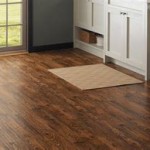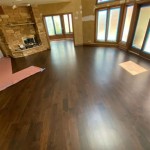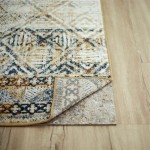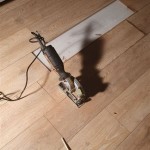Is Bamboo Flooring Non Toxic To Humans?
Bamboo flooring has become increasingly popular in recent years due to its durability, sustainability, and aesthetic appeal. However, some consumers are concerned about the potential health effects of bamboo flooring, particularly regarding its toxicity.
### What is Bamboo Flooring Made Of?Bamboo flooring is made from the stalks of bamboo plants. Bamboo is a grass that grows rapidly and is considered a renewable resource. The stalks are cut into strips, which are then flattened and glued together to form the planks.
### Is Bamboo Flooring Non Toxic?Yes, bamboo flooring is generally considered non-toxic to humans. The bamboo itself does not contain any harmful chemicals, and the adhesives used to bond the planks together are typically low in volatile organic compounds (VOCs).
### Certification and StandardsTo ensure that bamboo flooring is non-toxic, it is important to look for products that are certified by reputable organizations. Some of the most common certifications include:
*GreenGuard:
This certification ensures that products meet low emission standards for VOCs. *FloorScore:
This certification is similar to GreenGuard and also sets limits on VOC emissions. *Forest Stewardship Council (FSC):
This certification ensures that bamboo flooring is sourced from sustainably managed forests. ### Benefits of Bamboo FlooringIn addition to being non-toxic, bamboo flooring offers several other benefits, including:
*Durability:
Bamboo flooring is very hard and durable, making it resistant to scratches and dents. *Sustainability:
Bamboo is a renewable resource, and bamboo flooring is a more sustainable option than hardwood flooring. *Aesthetic Appeal:
Bamboo flooring is available in a variety of colors and styles, making it a versatile option for any home décor. ### PrecautionsWhile bamboo flooring is generally non-toxic, there are a few precautions that consumers should take:
*Avoid Products with Urea-Formaldehyde:
Some bamboo flooring products may contain urea-formaldehyde, which can release formaldehyde gas. Look for products that are certified as low-emitting or formaldehyde-free. *Ventilate the Home:
When installing bamboo flooring, it is important to ventilate the home well to allow any VOCs to escape. *Clean Regularly:
Regular cleaning will help to remove any VOCs that may have been released into the air. ### ConclusionBamboo flooring is a safe and sustainable option for flooring. It is non-toxic, durable, and aesthetically appealing. When choosing bamboo flooring, look for products that are certified by reputable organizations and take precautions to ensure that your home is well-ventilated.

Safest Bamboo Flooring Sans Pfas Forever Chemicals Lab Reports

A Guide To Non Toxic Flooring For Your Home

Non Toxic Flooring Options You Can Feel Good About Installing

The Benefits Of Plastic Free And Non Toxic Flooring Ted Todd

Pros And Cons Of Bamboo Floors Why We Chose Them For Our House Plaster Disaster

Bamboo Flooring Pros Cons Greencompostables Com

4 Reasons To Choose Bamboo Flooring Tesoro Woods

Non Toxic Flooring Options You Can Feel Good About Installing

What Is Non Toxic Flooring East Coast Interiors
A Guide To Non Toxic Flooring For Your Home
See Also







